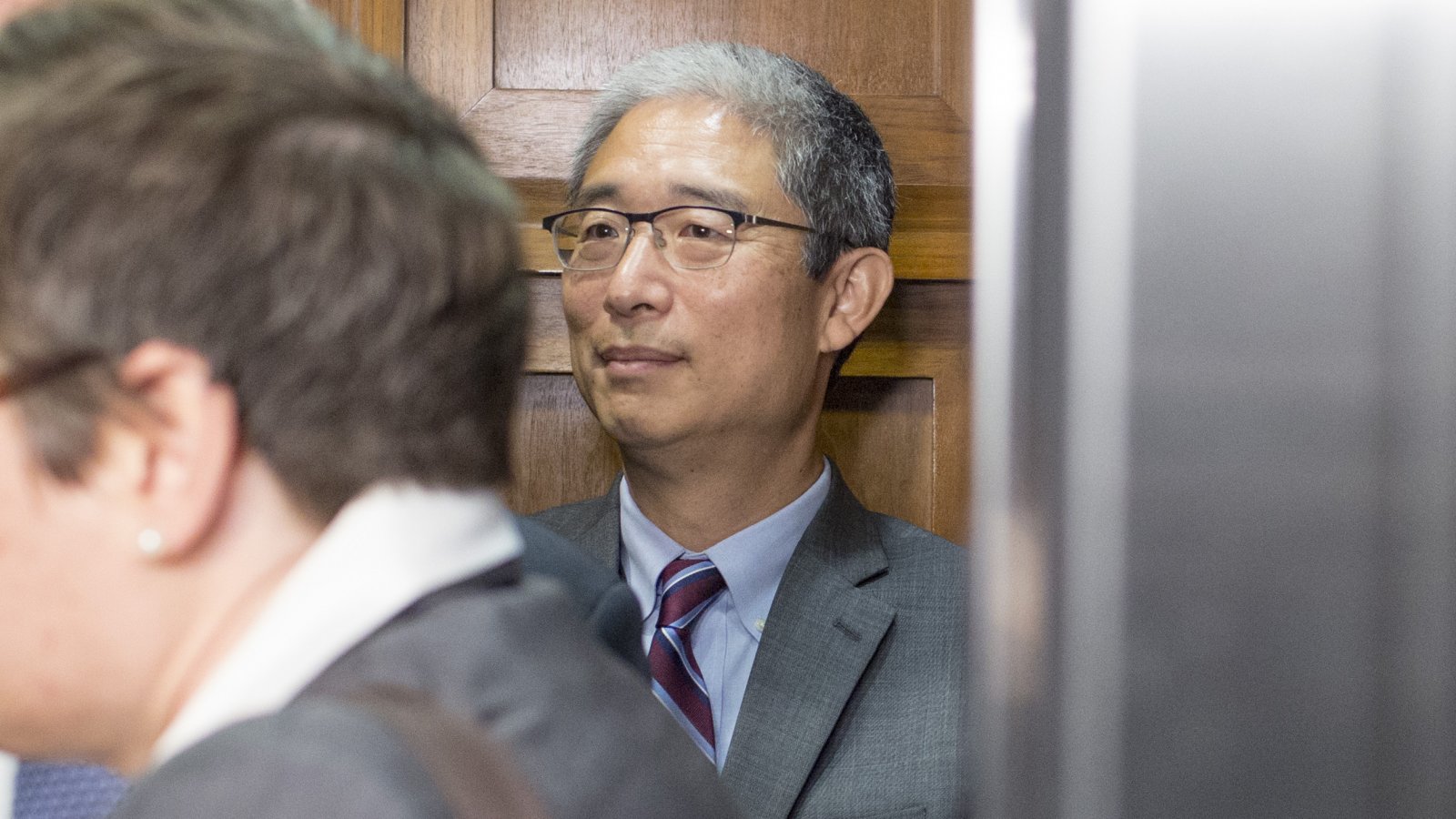
The Atlantic's Natasha Bertrand digs deeper into the likelihood President Trump's recent obsession with destroying longtime DOJ attorney Bruce Ohr might have less to do with his ties to Christopher Steele and his wife's affiliation with Fusion GPS than Ohr's own expertise in exposing Russian money laundering and organized crime.
Trump’s fixation with seeing Ohr ousted from the Justice Department could be perceived as yet another attempt to undermine the credibility of the people who have investigated him. It could also be interpreted as an attack on someone with deep knowledge of the shady characters Trump and his cohort have been linked to, including Semion Mogilevich, the Russian mob boss, and Oleg Deripaska, a Russian aluminum magnate close to Putin who did business with Trump’s campaign chairman Paul Manafort. (Incidentally, another Manafort associate, the Ukrainian billionaire Dmitry Firtash, admitted he only managed to be in business because Mogilevich allowed him to be, according to a leaked 2008 State Department cable.) Ohr was involved in banning Deripaska from the U.S. in 2006, due to his alleged ties to organized crime and fear that he would try to launder money into American real estate. Nearly a decade later, Ohr and the FBI sought Deripaska’s help in taking down overseas criminal syndicates.
Ohr is not alone. Most of the federal law enforcement officials Trump and his allies relentlessly attack also specialize in busting money laundering and organized crime.
And then there’s Andy McCabe, the former deputy director of the FBI who spent over a decade investigating Russian organized crime and served as a supervisory special agent of a task force that scrutinized Eurasian crime syndicates. McCabe is a 21-year FBI veteran who handled aspects of the Russia investigation until Mueller was appointed last May, an appointment McCabe says he pushed for. He was fired in March, just two days short of being eligible to receive his pension and other benefits from the bureau. The official reason was that he had lacked candor when describing his interactions with the press to the Inspector General’s office. But Trump and his allies’ relentless attacks on McCabe on Twitter and cable news made it difficult for many to believe that Attorney General Jeff Sessions’ decision to fire him was completely devoid of political considerations.
(...)
One member of Mueller’s team, meanwhile, has provoked more ire from the president’s allies than others: Andrew Weissmann, a seasoned prosecutor who oversaw cases against high-ranking organized criminals on Wall Street in the early 1990s and, later, against 30 people implicated in the Enron fraud scandal. Trump has also villainized former Mueller team member Lisa Page, a trial attorney in the Justice Department's organized-crime section whose cases centered on international organized crime and money laundering. She has been targeted by the president and his allies for mocking Trump in text messages she exchanged with Peter Strzok, a Russian counterintelligence expert in the FBI, during a period in which both briefly worked on the Mueller investigation. Strzok was fired earlier this month for writing similarly caustic messages. Trump says the texts showed outrageous bias and has cited them as evidence that Muller is out to get him.
Bertrand points out there is an abundance of evidence that Trump, despite his claims to the contrary, has had plenty of interaction with shady Russian business interests over the years.
[Trump]'s links to Russian oligarchs and mobsters from the former Soviet Union have been documented: Millions of dollars from the former Soviet Union flowed into Trump’s developments and casinos throughout the 1990’s, as journalist Craig Unger has documented, as oligarchs looked for a place to hide their money in the west. The Trump Taj Mahal casino in Atlantic City, New Jersey, was once known as a hot-spot for Brooklyn mobsters associated with the Russian mafia, and quickly became the "favorite East Coast destination" of top Russian mob boss Vyacheslav Ivankov, according to the 2000 book "Red Mafiya: How the Russian Mob Has Invaded America." It was also repeatedly cited by the Treasury Department's Financial Crimes Enforcement Network, or FinCEN, for having inadequate money-laundering controls.
By the early 2000’s, a third of the buyers of Trump Tower’s most expensive condos were Russia-linked shell companies or individuals from the former Soviet Union—including Eduard Nektalov, a mob-connected diamond dealer from Uzbekistan, and David Bogatin, a Russian emigre mobster who specialized in bootlegging gasoline. Bogatin’s brother was involved in an elaborate stock fraud with top Russian mob boss Mogilevich, who himself is allied with Alimzhan Tokhtakhounov—another Russian mob leader who ran an entire gambling and money-laundering network out of unit 63A in Trump Tower, just three floors below Trump’s own residence. (Tokhtakhounov was a VIP attendee at Trump's Miss Universe pageant in Moscow just seven months after the gambling ring was busted by the FBI.) Trump’s own sons have boasted of the Trump Organization’s dependence on Russian money. "Russians make up a pretty disproportionate cross-section of a lot of our assets," Donald Trump Jr. said in 2008. “We don't rely on American banks,” Eric Trump reportedly told a golfing buddy in 2014. “We have all the funding we need out of Russia.”
Full story: Trump’s Top Targets in the Russia Probe are Experts in Organized Crime (The Atlantic)